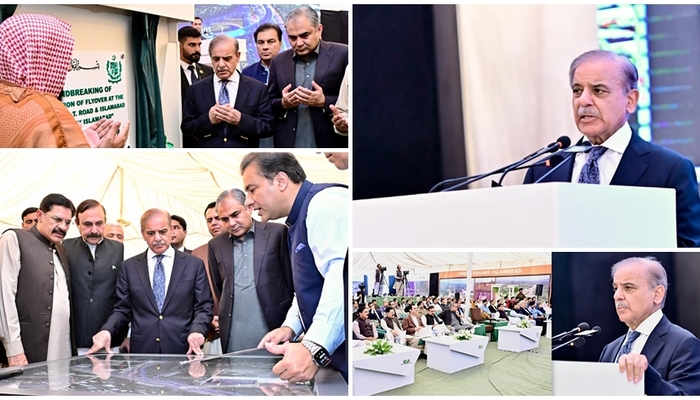He highlighted that the project is not just about traffic management but also about serving the broader public interest. According to the Prime Minister, interventions planned in the project will allow smoother entry and exit points for commuters and reduce bottlenecks that currently frustrate drivers.
Timely Project Delivery
Interior Minister Mohsin Naqvi also addressed the ceremony and shared details about the timeline. He assured the public that the project would be completed within 150 days. To ensure this ambitious deadline is met, separate monitoring teams have already been formed. These teams will focus on maintaining construction quality and ensuring that the project remains on track without delays.
The Prime Minister was informed that the estimated cost of the T-Chowk Flyover stands at nearly 1.5 billion rupees. Officials stressed that the investment is justified, given the benefits in reducing traffic congestion, saving fuel costs, and improving the daily lives of citizens.
Preparing for SCO Summit
In addition to the infrastructure announcement, Shehbaz Sharif spoke about Pakistan’s upcoming role as host of the Shanghai Cooperation Organization (SCO) summit. He stressed the urgent need for preparations and the importance of presenting Islamabad as a welcoming and organized capital city.
The Prime Minister underscored the importance of beautifying Islamabad ahead of the summit. He noted that international events provide an opportunity to display Pakistan’s progress in governance and infrastructure. He linked the T-Chowk Flyover to broader efforts aimed at modernizing the twin cities and showcasing efficiency to visiting dignitaries.
Read: Uproar Over Justice Dogar’s Remarks Sparks Debate on Sexism
Rail Connectivity Plans
Another significant announcement came when Shehbaz Sharif directed the Ministry of Railways to design a plan for connecting Rawalpindi and Islamabad through a modern rail system. He argued that road projects alone would not be sufficient to handle the growing transportation needs of the expanding population.
By creating a rail link between the two cities, the government hopes to ease daily travel pressures and offer commuters a faster, more reliable mode of transport. He called for a comprehensive and practical plan that can be executed without delay.
Broader Vision for Infrastructure
The launch of the T-Chowk Flyover fits into Shehbaz Sharif’s broader vision of infrastructure-led development. His government has consistently promoted road, rail, and public works projects as a way to stimulate growth and improve public services.
The flyover is expected to not only reduce congestion but also contribute to environmental benefits by cutting down fuel wastage and air pollution caused by long traffic jams. Improved traffic flow will also enhance business productivity, as the movement of goods and services will become more efficient.
Public Interest and Regional Impact
Residents of Rawalpindi and Islamabad have long demanded relief from traffic bottlenecks, particularly at entry and exit points along major highways. The T-Chowk Flyover directly addresses these concerns. Once completed, it is expected to transform one of the busiest intersections into a smoother transit route.
Moreover, the project’s strategic location enhances its significance. By linking the Express Highway and surrounding areas, the flyover will support both local commuters and those traveling to other parts of the country. This dual role of local and regional connectivity makes the project more impactful than a routine infrastructure upgrade.
The coming months will test the government’s ability to meet its promises, especially regarding the ambitious 150-day timeline. Yet, if completed as planned, the T-Chowk Flyover will stand as a visible reminder of how timely investments in infrastructure can ease urban pressures and improve quality of life for millions of people living in the two cities
Follow us on Instagram, YouTube, Facebook,, X and TikTok for latest updates
